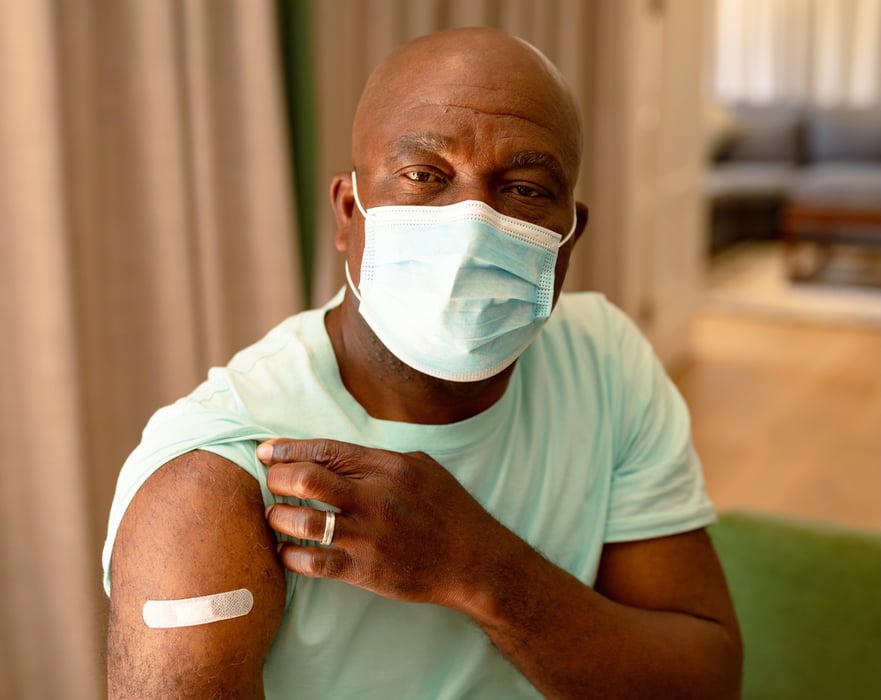CDC’s Expert Panel OKs Omicron-Specific Booster Shots From Pfizer, Moderna

THURSDAY, Sept. 1, 2022 (HealthDay News) -- A vaccine advisory panel to the U.S. Centers for Disease Control and Prevention voted on Thursday to recommend updated boosters from Pfizer and Moderna that target Omicron variants, paving the way for the shots to get into American arms within days.
All that is needed now is for CDC Director Dr. Rochelle Walensky to sign off on the recommendations, which she is expected to do. Final approval would come before the possible emergence of a winter surge in COVID-19 cases.
According to the CDC, hundreds of thousands of updated vaccine doses were already being delivered around the country on Thursday, the New York Times reported. Providers nationwide are expected to have millions of updated booster shots by Labor Day, the agency said, though some doctors have said they were told that initial supply would be small in their areas.
The CDC panel vote comes one day after the U.S. Food and Drug Administration gave its blessing for the updated booster shots.
“The FDA has been planning for the possibility that the composition of the COVID-19 vaccines would need to be modified to address circulating variants," Dr. Peter Marks, director of the FDA’s Center for Biologics Evaluation and Research, said in an agency news release announcing the emergency approval.
"We sought input from our outside experts on the inclusion of an Omicron component in COVID-19 boosters to provide better protection against COVID-19. We have worked closely with the vaccine manufacturers to ensure the development of these updated boosters was done safely and efficiently. The FDA has extensive experience with strain changes for annual influenza vaccines. We are confident in the evidence supporting these authorizations," Marks added.
FDA Commissioner Dr. Robert Califf urged Americans to get the new boosters.
“As we head into fall and begin to spend more time indoors, we strongly encourage anyone who is eligible to consider receiving a booster dose with a bivalent [targets both the original virus and the Omicron variants] COVID-19 vaccine to provide better protection against currently circulating variants,” he said in the news release.
Moderna's updated booster was authorized for those 18 and older, while the Pfizer booster was approved for those 12 and older, the FDA said. It should be given at least two months after primary vaccination or the original boosters.
Although these newest boosters have only been tested in mice so far, Marks told the Times last week that the agency has “extremely good” data showing that the shots are safe and will be effective.
Dr. Anthony Fauci, President Biden's chief medical adviser, also told the Times that using animal data was “not anything different than we always do” in updating the flu vaccine each year.
Marks added that other evidence included the extensive track record with the existing vaccines and a series of earlier human trials with variant-specific formulations.
Moderna has begun human trials of its new booster, while Pfizer plans to do the same.
The main target of the new shots? The BA.5 variant, which now accounts for nearly 90% of all new U.S. cases.
“We have really got to do better to protect the American public,” Fauci said. “We are in the middle of a BA.5 outbreak here, and we are nowhere near where we want to be.”
Despite that, U.S. health officials haven't managed to convince most Americans that they need more shots at this point in the pandemic. Only about two-thirds of the population has had the primary series of two shots, and far fewer have received booster doses.
And not all scientists are on board with the new boosters: Some maintain that the original vaccines provide strong protection against severe disease.
“Deaths are concentrated in unvaccinated people and people with serious health conditions,” John Moore, a virologist at Weill Cornell Medicine in New York City, told the Times. He added that the extra protection the new shots would provide against infection alone would likely be weak.
“My issue all along has been: Is there enough data to really justify the effort?” Moore said. “The potential downside is, if the public thinks that this Omicron-containing booster is some kind of magic bullet that will give them super-strong protection from infection, is there a risk that they will change their behavior to increase their exposure?”
Jeremy Kamil, a virologist at Louisiana State University Health Shreveport, told the Times that while he supports the new boosters, many people already have immunity because of recent infections.
“Even if we get this out in the next 10 days, how many people are left who haven’t gotten Omicron?” he said.
As of mid-August, the federal government had bought more than 170 million doses of the updated version of the vaccines, the Times reported. This month, the CDC laid out detailed plans to offer the shots, warning that the supply would be “sufficient, but finite.”
More information
Visit the U.S. Centers for Disease Control and Prevention for more on COVID vaccines.
Was this page helpful?
Related Posts
Are Vegetarian Diets Healthy for Growing Kids?
MONDAY, May 2, 2022 (HealthDay News) -- Vegetarian diets are a healthy choice...
Positive Childhood Experiences May Cut Risk for Adult Health Problems
TUESDAY, June 20, 2023 (HealthDay News) -- Positive childhood experiences (PCEs)...
Study Compares Baricitinib to Dexamethasone for COVID-19
TUESDAY, June 21, 2022 (HealthDay News) -- For hospitalized patients with...
Primary Care Doctors Receiving Specialized Training Can Diagnose Autism
TUESDAY, July 18, 2023 (HealthDay News) -- In most cases, community-based...
